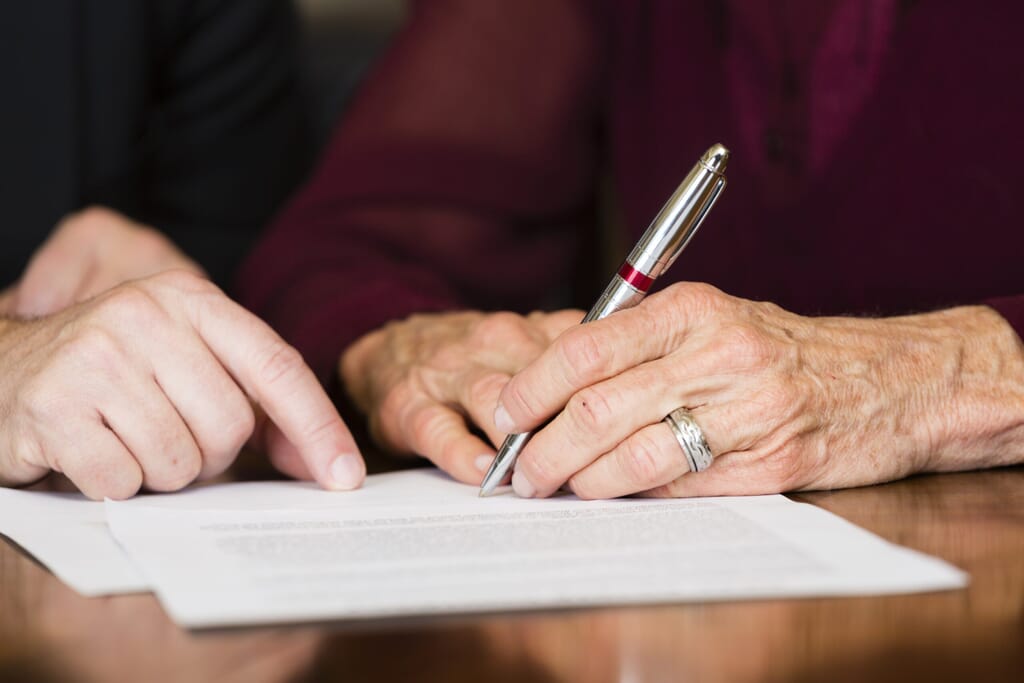
The simple answer is yes. All adults should have a Will. However young, however old because no one knows what tomorrow might bring. Some circumstances, however, make having a Will even more important and these are:
If you have a long term partner to whom you are not married
If you have children
If you have a second family or children from an earlier relationship/ marriage
If you own a property
If you would like to leave money or particular items to someone who is not your spouse or children or you would like to make a gift to charity.
Do I need professional advice to make a Will?
Yes. Taking proper legal advice will ensure that you consider all the implications of your decisions. It will help you to think about issues you may not have been aware of and it will help you to make decisions which are as tax efficient as possible.
If you have complicated financial or familial arrangements, it is crucial to take advice from a qualified, specialist solicitor who will take the time to understand your situation and make sure that all issues are considered and dealt with.
Taking professional advice will ensure that your Will is valid and compliant with statutory requirements. A Will which fails to comply with a technical statutory requirement will be invalid.
What does a Will do?
A Will is how you can control your estate when you die. Your estate may include your house and any other property that you own, your possessions (referred to as “chattels”), money in bank or other accounts, investments, savings of any sort and your business. All of these things together make up your “estate”.
A Will is how you get to decide who should inherit, how much they inherit, when they inherit and who is in charge of collecting and distributing your assets. It enables you to benefit those who need it the most and to gift to charities should you wish.
If you have children, a Will enables you to appoint guardians in the event that both parents die whilst the children are under 18. If you have children, It is vital to provide as much security and certainty as possible both for your children and for the wider family with responsibility for them.
A Will also enables you to express your wishes over what type of burial you want.
A properly drafted Will can prevent (or put to rest) family disputes which could otherwise arise.
What happens if I do not have a Will?
If you do not have a valid Will, your estate will be distributed in accordance with the rules of intestacy.
A few important things to understand are:
- You have no control over who gets what or when they get it. If you have immediate family, there is no way to benefit wider family members, non-family or charities. There is no way to give individual gifts. It is not up to the discretion of your close family because the rules are provided by statute.
- If your estate is worth £270,000 or less, your spouse will inherit everything but if your estate is worth more, 50% of the estate over this value will go straight to your children.
- Your children will inherit their share at 18. There is no discretion to hold it until they are older.
- If you are not married to your long term partner, they will have no right to any of your estate under the laws of intestacy. If you have children, your entire estate will go them. If you do not, your estate will pass to wider family.
What should I think about before I make a Will?
It is important to think about your family circumstances, your assets and who you would most like to benefit. It is also important to think about guardianship options for your children and talk first to your chosen guardians. Think about who you want to be in charge of your estate when you die and talk to those concerned before your Will is written.
Even in the most basic and straight forward situation, there are things to consider and wider implications of the decisions that you make. The more complicated your family or financial situation, the more issues need to be considered.
Here are some basic things to consider to get you started:
- Make a list of your assets and try to put a value on them.
- Think about what debts you have and how they can be paid when you die. Pre-existing creditors will have first call on your assets after your death.
- Are there any specific belongings or family heir looms that you would like to give to a specific person?
- Do you want to leave everything to your spouse / partner?
- Consider consequences of remarriage, further children and care home fees.
- Would you like to ring fence some money for any of your children now?
- How old would you like your children to be when they inherit?
- Who would you like to be in charge of your estate when you die (your Executors) or to be in charge of your children’s money before they receive their share? These must be people you trust implicitly and believe will be capable of managing potentially complicated issues.
- Do you have children from a previous relationship for whom you want to ensure an inheritance?
- Do you own any overseas property? You may need to have a separate Will to deal with this.
What about inheritance tax?
Inheritance tax applies to the value of your estate. It is a tax on your estate not a tax on the beneficiaries although it will reduce the value of the estate which they inherit.
If you think that the value of your estate might be such that inheritance tax will apply, it is important to consult a specialist solicitor at the time of writing your Will, to consider tax efficient ways to plan your estate. We have all worked hard for our assets and savings and want to ensure that they pass as far as possible to those that we love.
Inheritance tax at 40% is paid on every penny in your net estate which is falls over the inheritance tax threshold. Inheritance tax used to be seen as a tax for the wealthy. It now affects far more people, many of whom would not expect it. This is largely due to the huge increase in the value of property which has out-stripped any increase to the tax threshold.
The individual inheritance tax free limit (known as the “nil rate band”) is £325,000. If you are married, your limit can be “passed” to your spouse (if you do not use it when you die) so that when (s)he dies their limit will be £650,000. There is also an additional “residence nil rate band” which applies to the value in your family home if it is inherited by direct lineal descendants, this is set at £175,000 per person and, like the nil rate band, can be passed to your spouse.
For further advice or to make an appointment please contact:
Taunton Office
Anna Neil or James Ashby 01823 745777 e. private.client@maitlandwalker.com
Minehead Office
Ben Simpson, Emily Simpson or Kerry Rickets 01643 707777 e. private.client@maitlandwalker.com
Talk it over
with an expert
with one of our friendly and professional team
